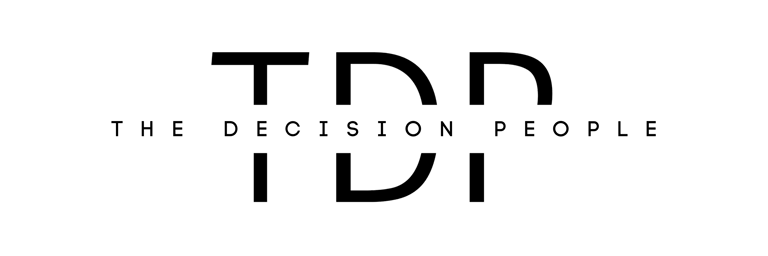🎬 We’re on YouTube
👉 Smart biz advice, no fluff → Watch here
Hire for the Long Haul: Future proof your recruitment strategy
I had a small content writing business in the late 2010s. We would ghost-write blog posts and magazine articles for FinTech companies, primarily in the Asian and European region. I ran this business alongside my full-time corporate job. I would spend my evenings and some Saturdays, working on articles. Meeting deadlines was crucial, and it involved a lot of coordination with editors and marketing to ensure content had the company’s brand voice and other tweaks completed on schedule. At this time, it was just me. I was expected to create 3-4 articles per month for a single client. It became clear to me that I needed to practice what I preach, and delegate.
PEOPLE
Sabrina Singh
10/16/20246 min read
I had a small content writing business in the late 2010s. We would ghost-write blog posts and magazine articles for FinTech companies, primarily in the Asian and European region. When the pandemic was in full swing, I realized it was no longer something I was passionate about and decided to fulfill the remainder of my client contracts then closed the business.
But before that, I ran this business alongside my full-time corporate job. (This also meant client meetings at the crack of dawn because of the time zone differences). I would spend my evenings and some Saturdays, working on articles. Meeting deadlines was crucial, and it involved a lot of coordination with editors and marketing to ensure the content I created had the client’s brand voice and other tweaks were completed on schedule. At this time, it was just me.
My corporate job was already very demanding and on top of that, I was in school, had other personal obligations to fulfill, and actively managed my health so I wouldn’t crash and burn from everything. It was a lot to get done but fortunately, I had good clients who paid on time which made it feel rewarding.
Even so, it was still a lot for one person. I was expected to create 3-4 articles per month for a single client. (Imagine how stressful it becomes when you’re doing that for more than one client, given all the other hats I’m wearing in life).
It became clear to me that I needed to practice what I preach, and delegate.
(For more about delegation and processes, check out: Taming the Chaos in Business Operations, One Process at a Time)
Of course, this meant hiring people. (A daunting undertaking for me, as an introverted solopreneur).
That’s when I realized I needed a recruitment strategy.
What do I mean by “recruitment strategy”? A Long-term, holistic view aligning talent acquisition with business goals.
When developing a recruitment strategy, there are a few things that you need to look out for. I’ll be sharing three major challenges I’ve seen across businesses:
Misalignment with Business Goals
Overemphasis on Qualifications Over Fit
Lack of Flexibility & Adaptation to Market Trends
So let’s talk about them.
1. Misalignment with Business Goals
Can you imagine, hiring a full-time YouTube Manager because someone on your team said, “let’s do a YouTube channel!”. Only to realize you wanted to do a limited series podcast instead so all you needed was a podcast manager on a 3 month contract? (Yikes… sounds like a great start to massive corporate layoffs👀)
It might sound a bit extreme but this has happened and can happen to you if your recruitment strategy doesn’t align with your business goals and also so business strategy.
Understanding the connection between business goals, strategy, and recruitment is crucial.
Here's why:
Business Goals: Recruitment is a means to an end. The goal is to attract and hire talent that will contribute to achieving the company's overall objectives. For example, if a company aims to expand into a new market, the recruitment strategy should focus on hiring individuals with expertise in that market.
Business Strategy: The recruitment strategy should be consistent with the company's broader approach to growth and success. If the company is pursuing a cost-effective strategy, the recruitment strategy might prioritize hiring entry-level candidates or utilizing freelance talent.
To avoid this type of misalignment, you should do Workforce Planning & Forecasting - another fancy corporate jargon that means aligning recruitment efforts with current and future business needs - assuming you’re serious about your business and are in it for the long haul. (You know why they say you shouldn’t assume anything, right? You make an ass out of u and me 🙂 …but I digress).
If you’re in it for the long haul, then it’s good to have a business strategy that can help you envision what you want your business to look like in 3 years, 5 years and even 10 years.
That way you can forecast or predict future hiring needs by reviewing organizational growth plans, turnover rates, and department expansion plans. And this will ultimately help you build a 3-5 year recruitment plan based on anticipated skill needs, retirement trends, and industry shifts.
For my content writing business, I knew that I needed to be flexible and adaptable, considering the stage of my business and the plans I had in mind. I was the lead writer and so I hired a researcher, junior writer, and graphic designer. However, since I didn’t have a physical office I hired them as remote workers on contract as needed. So they were only paid for services rendered and they had the freedom to do other jobs they wanted when they were not working on my clients’ work. This was the best setup for me, especially when I decided to close the business. No one was adversely impacted in a major way.
2. Overemphasis on Qualifications Over Fit
Sue (real name withheld) was looking to expand her customer success management team over a 12 month period (i.e. recruitment strategy) as part of her customer retention strategy.
The last new hire was fired after 3 months. It was bittersweet for Sue because on paper he was the perfect candidate. He was very skilled and had experience in a lot of industries so he had a good perspective to share. However, he just was not a cultural fit for her business.
She needed people who understood sales and marketing psychology. But more importantly to her, she needed people who had empathy for her clients.
She had built a customer-focused culture for her business, and it was essential for her employees to share this trait.
Over time she also realized that she needed to hire people with an entrepreneurial mindset because after analyzing the data in her business, she realized that customer churn could be mostly attributed to a lack of follow up and follow through.
(If you want to read more about data-driven decisions, check out: Looking for Business Growth? Data-Driven Decisions might be the answer)
When I hired my first part-time researcher, he was already working at a firm doing business analysis which incorporated research and presenting your findings for decision making. However, he had no experience when it came on to content writing. Though he had a research background suited for a more academic and business writing context, he had no clue about a marketing and sales context.
Nevertheless, what I admired was his drive and eagerness to take on a new challenge and learn how to transfer his skillset into this arena. For what I needed done, his positive attitude made a significant difference. He got so good that he ended up transitioning to a content writer and oversaw the graphic designer. I didn’t need someone super qualified for the role, I needed someone who was adaptable, eager to learn and a quick study. That made all the difference.
Focusing too much on specific qualifications while overlooking cultural fit, adaptability, and long-term potential might result in hiring skilled individuals who struggle to thrive or remain within your organization. Strike a balance between technical skills and alignment with company values.
3. Lack of Flexibility & Adaptation
We’ve seen a lot of market shifts over the last decade. Things like full-time office work to fully-remote freelancers to hybrid work arrangements. Not to mention the unprecedented growth of AI in practically every industry within the last 3 years has fundamentally changed the way we work and live. So it should come as no surprise that the way we recruit new hires will be affected.
What does that look like?
Well for starters, if you usually post on job boards for certain positions, you might want to start incorporating different approaches like developing strategic partnerships with colleges and universities so that you have first dibs on fresh talent, if that’s your thing. (There I go assuming again…).
Our dear Sue actually did that.
She started sponsoring a particular club at a local college about 3 years ago. She thought this would be a great way for her to keep abreast of all the budding talent who were potential fits for her organization. She really created a presence there speaking at events, mentoring a few students and so on. And it paid off. She was able to take on 4 interns and 3 ended up transitioning to full-time employees!
Look at that!
she was able to hire candidates that fit her organization,
for roles that were aligned with her business goals,
by utilizing an effective recruitment strategy based on market analysis
(Did I mention that she paid well and gave her employees better compensation and benefits packages than the industry average? Yea, that's a thing as well).
My approach was also different. I took recommendations from a trusted network when I was hiring a graphic designer. That worked out perfectly for me because I knew their work and work ethic beforehand so the transition was seamless.
It’s so important to regularly review market trends, interview methods, salary benchmarks and benefits packages.
And with all things, feedback feedback feedback. Can’t neglect the feedback. Incorporate feedback from hiring managers, new hires, and the HR team.
Do these things so that you can ensure your recruitment strategy is effective. There is no point in continuing something that is ineffective.
Let’s Wrap Up
No matter if you have a large, small or even tiny business, once you are looking to grow or scale, you will need to hire at least one person somewhere along the road. So, why not do it well?
For that, you need an effective recruitment strategy that:
Aligns with your business goals (and strategy)
Values culture fit just as much as qualifications
Is flexible and adaptable
Try it out and see how your business thrives.
If you're done duct-taping your business together and ready for systems that actually support you — we’re here for it. Whether it’s smarter planning, cleaner processes, or building a team that just gets it, we help service-based businesses run smoother (and saner).
Curious? Check out our services (click here). Let’s make your business make sense.
COPYRIGHT 2025 THE DECISION PEOPLE LLC | ALL RIGHTS RESERVED | LEGAL
Take our Free quiz


